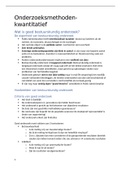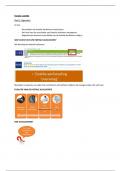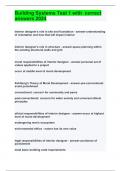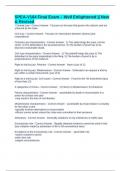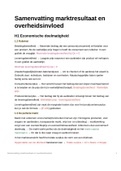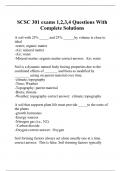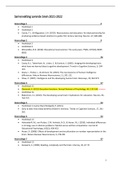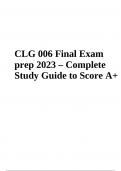An Introduction
to Non-Medical
Prescribing.
Case Study
,An Introduction to Non-Medical Prescribing 2
Contents
Page
3 Introduction & The Patient
4 The medications & Sertraline
5 Sertraline
6 Risperidone
7 Risperidone, Interactions & Professional Issues
8 Professional issues & Conclusion
9 Appendix 1: Pen portrait of service user, 'Mark'
10-11 References
, An Introduction to Non-Medical Prescribing 3
Introduction
The author aims to address the suitability of two branch specific (mental health) medications for a
particular patient from a previous case load. All names and potential identifiers have been
anonymised to protect the patient's confidentiality. This report will first briefly examine the patient
and their diagnoses, with a pen portrait to further elaborate on the individual's background, lifestyle
and circumstances surrounding their contact with mental health services (see Appendix 1).
Information regarding the medications that they were prescribed during this period of contact will be
presented and their suitability not only to the diagnosis but to the patient themselves will be
critically evaluated. The author will then consider the professional issues that arose throughout the
patient's experience of mental illness as well as those surrounding concordance, adherence and
the law.
The patient
The patient in question, 'Mark', was 16 when he first made contact with mental health services. He
had been coping independently for some time with his symptoms but due to stress from several
different sources they grew in severity and he found his ability to cope diminished. This prompted
him to make an appointment to see his GP. He was honest with the GP as he didn't understand what
was happening and was worried that he was 'going mad'. He told the doctor that he had
experienced depression for several years and that as time went by he began to experience
increasingly delusional thoughts, paranoia and dissociation. This was compounded by intermittent
visual and auditory hallucinations and Mark was further distressed by an apparent loss of function;
he began finding it very difficult to concentrate or to motivate himself to get out of bed. This further
exacerbated his worry of failing his A Levels and caused a lot of tension between himself and his
mother.
Mark found the consultation with the doctor very brief, with the end result being a prescription for
Sertraline, an antidepressant; he was also given a referral to a psychiatrist, as the GP found some of
Mark's symptoms 'worrying'. Little information was given to Mark regarding the Sertraline except
what dose to take. The psychiatrist focussed more on his mother. The result of this was Mark leaving
the office with an apparent lack of diagnosis; with the exception of vague mentionings of a 'psychotic
break', the doctor had called his mother 'schizophrenogenic' and gave him a prescription for
Risperidone, an atypical antipsychotic drug.
Mark was now in receipt of two drugs that he knew nothing about but the dose. To add to this
confusion, the psychiatrist told Mark to take a different dose than what was noted in the patient
information leaflet and the pill box itself. He experienced several issues with his medication which
will be thoroughly examined in the next section of this report.

